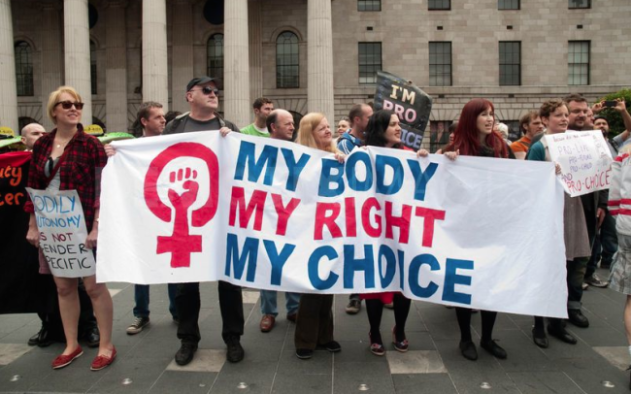We need to establish that the only legal answer to “under what circumstances is an abortion appropriate?” is “when the pregnant woman decides to have one.”
Like many people, I belong to more than one community of people who are fighting for equality. I want all women to have full reproductive rights; as the mother of a son with Down syndrome, I want a world where ignorance about disability does not lead to artificial limitations on his future.
These goals are needlessly in direct conflict because the reproductive rights movement often uses examples of prenatal diagnoses of a disability as one of the most urgent examples of why women need access to abortions. The strategy harms the disability community by reinforcing the idea that life with a disability—or in this case, life parenting a child with a disability—is not a life worth having. Many people actually living with disability tell a very different story.
To multiply the indignity, the tact also harms the reproductive rights movement. Abortion should be legal because women have the right to make decisions about their own body in every case, not just in a subset of cases where the larger public agrees that the situation is somehow so dire as to merit the termination of a pregnancy.
At heart, reproductive rights are simply a call to respect a woman’s agency over her own body. This stance is not in conflict with anyone who truly values self-determination. However, in practice, the concept is anything but simple. Allowing women as a whole to have independence in determining when and to what extent our society reproduces is an idea too radical for many people to take in. In an effort to make abortion more palatable to the rank and file, the pro-choice movement often downplays choice as a fundamental right and instead has created a list of scenarios that portray a subset of women as victims of circumstances beyond their control. Women who are victims of rape and incest, women who are carrying disabled children, single mothers who lack the financial stability a husband could provide them with—the story they tell is that these women need to be allowed access to legal abortion.
In practical terms, the strategy has some effectiveness because, by using these extreme examples as the “face” of the movement, the pro-choice contingency has managed to maintain at least theoretical access to abortion for all women. Perhaps unsure they can win the war, the movement wins individual battles where it can based on these compelling situations. However, in the larger context, this approach is detrimental to both women and the disabled.
First of all, instead of holding fast to the view that women have a fundamental right to make decisions about their own body, the stance is that women are victims—of rapists, genetics, deadbeat dads, etc.—and need to be given the opportunity to have an abortion. Rather than taking what is ours, we are asking to be saved.
Second, the debate around reproductive rights has become hopelessly complicated. States are forever attempting to restrict access to abortion and define circumstances that do or do not justify abortion. For instance, as an example of how the conservative factions in our country also use people with disability as pawns, in 2013 North Dakota passed legislation banning abortion when the decision to terminate is based on the diagnosis of a genetic defect like Down syndrome. Other states are considering the same.
As long as we allow loopholes in reproductive rights law, conservatives will chip away at women’s freedoms. We need to establish that the only legal answer to “under what circumstances is an abortion appropriate?” is “when the pregnant woman decides to have one.”
These two arguments show how the current narrative of the pro-choice movement weakens the long-term fight for complete reproductive freedom. However, the strategy also negatively impacts the disabled community and, under no circumstances, does the welfare of one group of oppressed people ever justify the degradation of another. I would never support the selective bans on abortion that states like North Dakota advocate because they are insulting to women. I will never participate in the narratives of the reproductive rights movement that contribute to the idea that a life with disability is not worth living.
The reproductive rights movement needs to stop positioning itself at the expense of the disability community. Women don’t need access to abortion because they are carrying a disabled child or are a victim of sexual assault, women need access to abortion because they have an absolute right to make decisions about their own body. No special cases needed.
Anne Penniston Grunsted is a Chicago-based writer who focuses on her experience with disability (her son has Down syndrome and she lives with mental illness) and parenting. She has published in Brain, Child, Quartz, and Chicago Parent and won the 2014 Nonfiction prize from Beecher’s Magazine. She lives with her partner and son in the Uptown neighborhood of Chicago.
Related Links:

